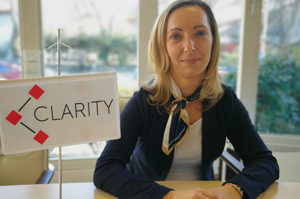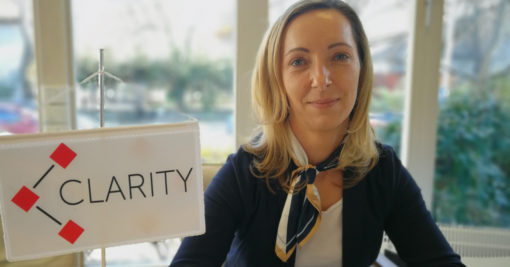News
Coffee Break Interview with Erika Benczik-Suhajda


Clarity Today we were talking with Erika Benczik-Suhajda, who held an interesting knowledge sharing event to our colleagues under the topic of public finance management.
Clarity What exactly was the event about?
Erika During the 4-hour-long professional forum we acquainted with the public finances and its system. We also scrutinized the tasks of the state, its most important processes – planning and execution of budget, and finally the process of reporting.
Clarity Why was it essential for the colleagues to gain such knowledge?
Erika 50% of Clarity’s customer base consists of public administration institutions, thus for a long time there has been a demand for an internal knowledge sharing event. Surely everyone has heard terms like budgetary authority, public finances, appropriation, etc., however some of us would be in trouble having to define what they mean exactly. It was therefore essential to clarify the basic terms, the special rules of public finance management, legislative requirements, furthermore the place of the state in the national economy, as being one of its special members.
Clarity What projects did/do you work on which is connected with public finance management?
Erika Last year I participated in the expert support of the development of the ASP data warehouse for local governments within the framework of the ASP 2.0 for local governments project. During this project I performed expert planning and control tasks in terms of management and tax expert systems. This year I am also participating in the planning and development of a data warehouse project, in a similar role.
Clarity Would you tell us a little more about the ASP for local governments project?
Erika The main goal during the design of the ASP data warehouse was to have a data warehouse that provides opportunity for the government (Ministry of the Interior, Ministry of Finance etc.) to analyze in detail and in context the data related to the tasks of local governments, to monitor the liquidity situation on an ongoing basis, timely identification of task financing problems and potential financial risks. The aim was to develop a central data warehouse to store, manage and handle local governments’ large amount of relevant source data in order to analyze the data and information nationwide and create reports, statistics.
Clarity What are the benefits of running a data warehouse for budgeting authorities?
Erika A well-functioning data warehouse can bring many benefits and a great opportunity for organizations to support the decision-making process by analyzing existing datasets. Provides an opportunity to create mandatory data services from the data assets within, as well as to meet organizational/governmental analytical needs, all in controlled, closed environment, on data assets prepared for analysis with high data quality.
Clarity Are there any drawbacks?
Erika I would mention perhaps the high development, maintenance costs and the slow ROI (return on investment). That is why the proper needs assessment and decent planning is crucial. There could be some business processes that get more complicated as the data warehouse becomes a part of the daily routine. This means mainly the processes including obtaining and updating data, like access or authorization.
It is vital that the data quality of the data warehouse is under constant control in order to reliably serve the reporting and analytical needs. For this, it is important to establish data validation rules and data quality reports on the data warehouse side, as well as related organizational procedures and processes.
Conclusively, let me close with a quote from Philip B. Crosby, who also drew attention to the importance of data quality, which, by the improvement of digital technology, can be interpreted as a fundamental requirement towards IT systems:
“Quality is free. It’s not a gift, but it’s free. The ‘unquality’ things are what cost money.” The lack of quality, i.e. all the activities that were not executed appropriately need to be executed posteriorly.
Clarity Thank you Erika for the interview!
